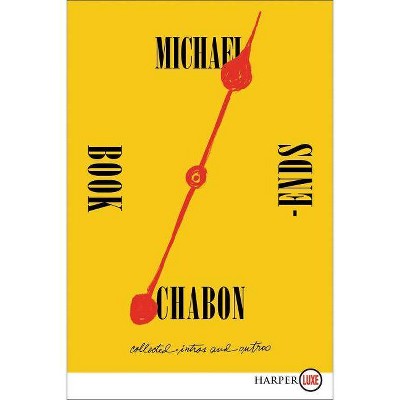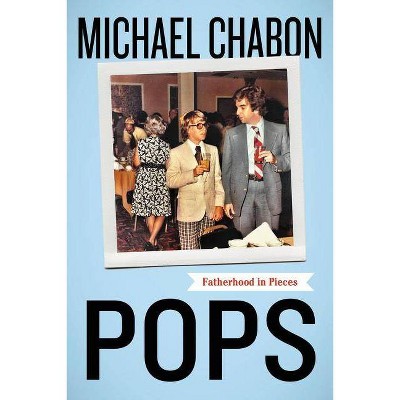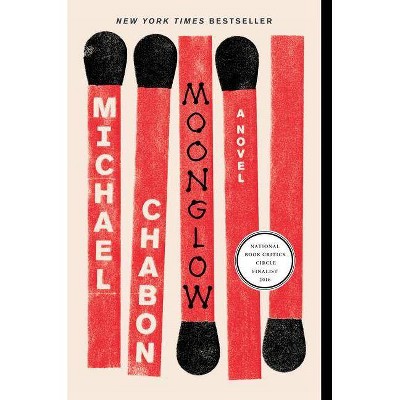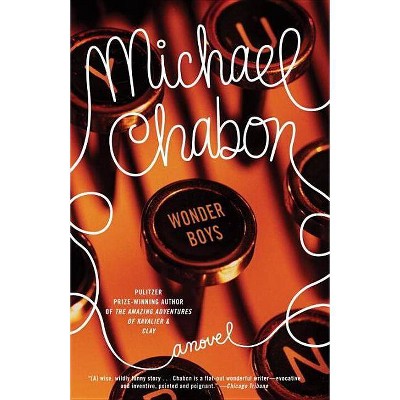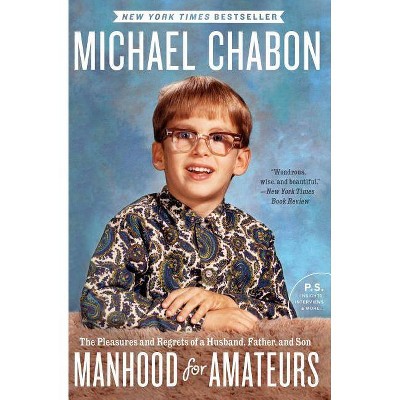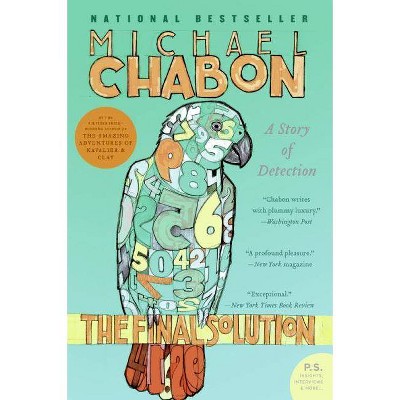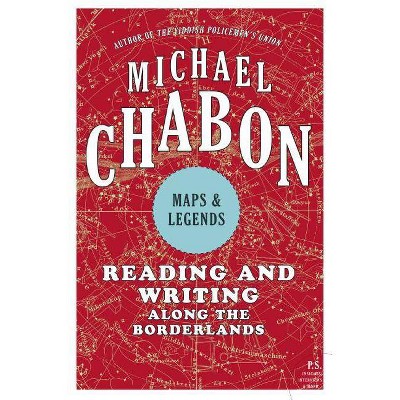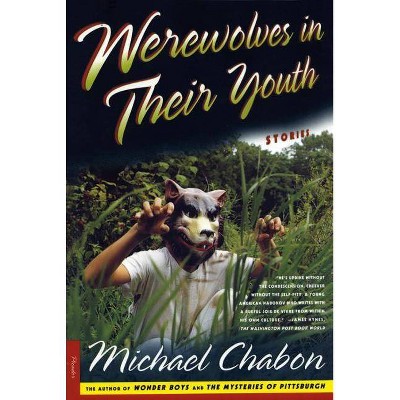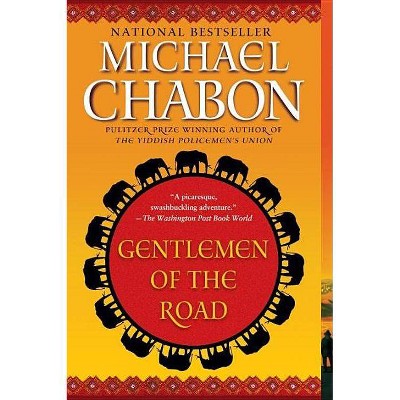Bookends - by Michael Chabon (Paperback)
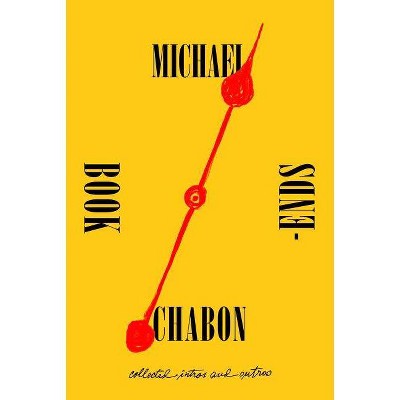
Similar Products
Products of same category from the store
AllProduct info
<p/><br></br><p><b> About the Book </b></p></br></br>"In Bookends, Pulitzer Prize winning author Michael Chabon offers a compilation of pieces about literature--age-old classics as well as his own--that presents a unique look into his literary origins and influences, the books that shaped his taste and formed his ideas about writing and reading"--<p/><br></br><p><b> Book Synopsis </b></p></br></br><p>A brilliant, idiosyncratic collection of introductions and afterwords (plus some liner notes) by <em>New York Times </em>bestselling and Pulitzer Prize winning author Michael Chabon--"one of contemporary literature's most gifted prose stylists" (Michiko Kakutani, <em>New York Times</em>).</p><p>In <em>Bookends</em>, Pulitzer Prize winning author Michael Chabon offers a compilation of pieces about literature--age-old classics as well as his own--that presents a unique look into his literary origins and influences, the books that shaped his taste and formed his ideas about writing and reading. </p><p>Chabon asks why anyone would write an introduction, or for that matter, read one. His own daughter Rose prefers to skip them. Chabon's answer is simple and simultaneously profound: a hope of bringing pleasure for the reader. Likewise, afterwords--they are all about shared pleasure, about the pure love of a work of art that has inspired, awakened, transformed the reader. Ultimately, this thought-provoking compendium is a series of love letters and thank-you notes, unified by the simple theme of the shared pleasure of discovery, whether it's the boyhood revelation of the most important story in Chabon's life (Ray Bradbury's The Rocket Man); a celebration of the greatest literary cartographer of the planet Mars (Edgar Rice Burroughs, with his character John Carter); a reintroduction to a forgotten master of ghost stories (M. R. James, ironically the happiest of men); the recognition that the worlds of Wes Anderson's films are reassembled scale models of our own broken reality (as is all art); Chabon's own rude awakening from the muse as he writes his debut novel, <em>The Mysteries of Pittsburgh;</em> or a playful parody of lyrical interpretation in the liner notes for Mark Ronson's <em>Uptown Special</em>, the true purpose of which, Chabon insists, is to spread the gospel of sensible automotive safety and maintenance practices. </p><p>Galaxies away from academic or didactic, <em>Bookends </em>celebrates wonder--and like the copy of <em>The Phantom Tollbooth </em>handed to young Michael by a friend of his father he never saw again--it is a treasured gift.</p><p/><br></br><p><b> From the Back Cover </b></p></br></br><p>In <em>Bookends</em>, Pulitzer Prize-winning author Michael Chabon offers a compilation of pieces about books--age-old classics as well as his own--that presents a unique look into his literary origins and influences, the literature that shaped his taste and formed his ideas about writing and reading.</p><p>Chabon asks why anyone would write an introduction or, for that matter, read one. His own daughter Rose prefers to skip them. Chabon's answer is simple and simultaneously profound: "a hope of bringing pleasure for the reader." Likewise, afterwords are all about shared pleasure, the "pure love" of a work of art that has inspired, awakened, or transformed the reader. Ultimately, as readers make their way through these pages, an argument emerges about the profound interrelation between reading and writing, and the irrelevance of distinctions between high and low, between genre and mainstream, to the power of literature.</p><p/><br></br><p><b> Review Quotes </b></p></br></br><br>"The gleanings of an idiosyncratic, omnivorous human mind: a destination unto itself but also a gateway to the work of others."--<em>Los Angeles Times</em><br><br>"An intellectually waggish labor of literary love.... The erudite author celebrates science fiction, fantasy, myths, comics, ghost stories, and more, distilling his wonder of the craft of storytellers that has captivated his heart since boyhood.... A wholehearted fandom of the written word."--<em>Christian Science Monitor</em><br><br>"A collection of wide-ranging, envy-making, page-turning criticism: what it is, how it is and why it matters. Above all else, it's an introduction to what criticism is for."--<em>Paste</em><br><br>"A wander along the lost avenues and borderlands of the 20th century popular imagination ... <em>Bookends</em> celebrates the skill of artists and writers to conjure imaginary worlds.... Ultimately, the success of "Bookends" lies in the way it demonstrates a lifelong emotional engagement with the possibilities of art, and the texts that speak to us at important moments in our lives. It traces the strange spark that arises at 'the intersection of a wish and the tip of a pencil.' ... Entertaining, funny and eminently readable, <em>Bookends</em> restores the intrinsic and illuminating role that art can play in our lives."--<em>San Francisco Chronicle</em><br><br>"Chabon, the incandescently imaginative and artful author of a dozen works of fiction...offers fresh and illuminating analysis of the various styles and intentions of forewords, an often-dismissed literary form that he turns into scintillating hybrids of literary appreciation and memoir. Chabon devotees will relish his ensnaring essays for the insights they provide into his inspirations."--<em>Booklist</em><br><br>"Eclectic, exuberant."--<em>Kirkus Reviews</em><br><br>"Insightful...intelligent and entertaining."--<em>Publisher's Weekly</em><br>
Price History
Price Archive shows prices from various stores, lets you see history and find the cheapest. There is no actual sale on the website. For all support, inquiry and suggestion messages communication@pricearchive.us
